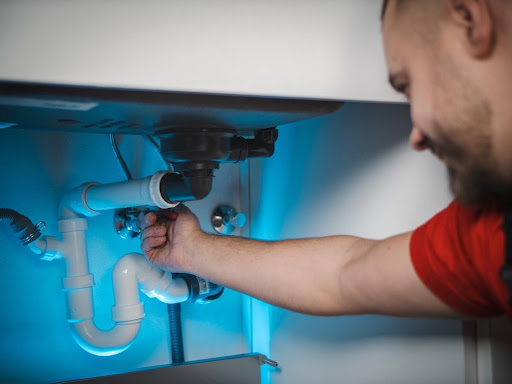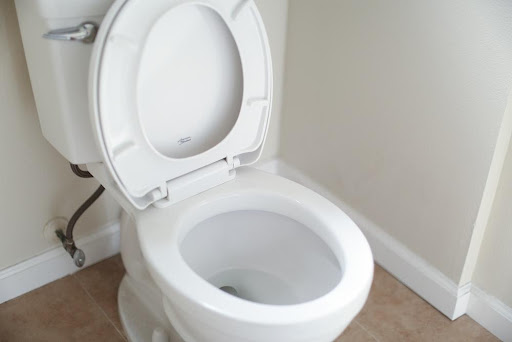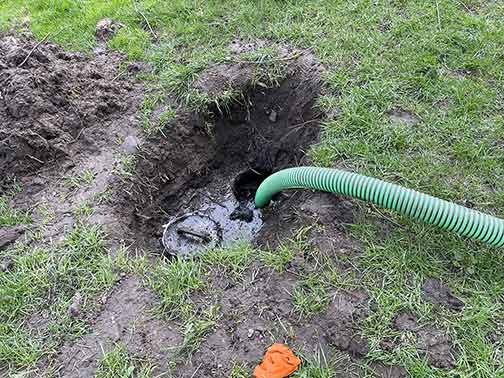
What do you do when you wake up one morning to find the drains in your home acting up, but after investigation, you determine the problem is not with the drains, but your septic tank is overflowing?
Two professionals come to mind: a plumber and a septic service company.
But East Bay Management experts advises the right person to call for septic tank issues is a septic service company. This post explains why.
A bit about septic systems
Septic tanks are underground waste treatment systems for homes located in places without access to a central sewer system. The primary job of a septic tank is to store solid waste and do some preliminary treatment of liquid waste before sending it into a leach field.
Wastewater, containing solids and semi-solids, enters the tank, but only liquid waste (effluents) is discharged into the leach field. The solid waste is left behind to accumulate inside the tank until the septic tank is pumped out. If the tank is not pumped at the right time, it could fill with solids.
Some of the solids can wash downstream into the field lines. Solids that have found their way into the leach field can plug the lines, forcing wastewater from the tank to flow backward. If this happens, the water may eventually find a way out through the top of the tank or back into the home, causing drains to overflow.
But this is not the only reason why a septic system may overflow.

Why your septic system is overflowing
If they are properly designed and installed, septic tanks should be watertight. It is hard for water to enter a septic tank from outside and cause an overflow. When a septic tank overflows, it is usually because the drain field is blocked, collapsed, or overwhelmed.
Apart from solids entering field lines from the tank and blocking them, other reasons that a septic system can overflow are explained below:
High water usage
Your home’s septic system is designed to handle a certain amount of water daily. This number is determined by how many people are in your home and the number of bathrooms, toilets, and faucets in the house. If your home’s water usage exceeds what the tank can handle, you may have a septic system overflow.
Heavy rainfall
Heavy rains can also mess with your septic system. Effluents that enter the field lines from the tank eventually drain into the surrounding soil. But this is only if that soil is not oversaturated with water. If the soil becomes waterlogged due to heavy rains, liquids from the septic tank will remain inside the field lines, blocking them and causing wastewater to backflow into the tank and the home.
Poor maintenance
Your septic system could overflow because the tank has not been pumped for a long time. Septic tanks must be pumped periodically; how often you pump them depends on the number of people in the home and how the tank is used. If a washer line is routed through the tank and the home has a garbage disposal, the tank must be pumped more often.
Pump failure
In most homes, the field lines slope downhill away from the tank, so the water inside them flows downwards under the force of gravity. But in some homes, the filed lines are uphill from the septic tank. This arrangement requires a submersible pump to pump wastewater from the underground chamber into the field lines. If the pump fails, the septic tank will overflow.

Whom should you call if your septic system overflows?
When this problem happens, you can choose between calling your plumber and septic service. Homeowners call a local plumber because an overflowing septic tank may present as a blocked drain. Since they think the issue is a clog inside the drain, it is normal for the homeowner to contact a plumber.
But the right professional to call if your septic system is overflowing is a septic service company. Plumbers work with your home’s water supply and drain lines; they can install and repair pipes, faucets, garbage disposals, toilets, and water heaters. But the professional with the right training, tools, and information to deal with septic issues is a septic service company.
This is because solving an overflowing septic system is not always straightforward. If the field lines are plugged, you may need to evacuate the field, check the lines for blockage, and possibly replace the lines and gravel. If this is not possible – that is, if the lines cannot be salvaged – your lines may need to be replaced. This is not a job for a plumber.
But if your field lines are uphill from your tank and the pump has failed, or its breaker tripped, the problem is easier to fix. In this case, you don’t need to replace your field lines. However, the only way to know the actual cause of your septic system issues and the right solution for the problem is to contact the right person.
The right professional for sewer system issues is a septic service company.

